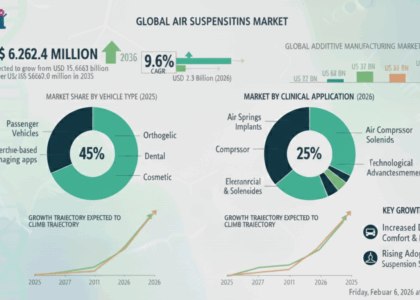In the ongoing transformation of the automotive bioplastics industry towards sustainability, bioplastics have steadily gained recognition as a viable alternative to conventional petroleum-based materials. However, discussions around their applications often focus narrowly on dashboards, seat fabrics, and structural components. A less commonly explored yet critical application area is acoustic insulation—an essential element for passenger comfort and vehicle performance. This article delves into the role of bioplastics in automotive acoustic insulation systems, shedding light on innovations that are reshaping how sound, sustainability, and design converge inside the cabin.
Rethinking Bioplastics: More Than Just a Green Alternative
Bioplastics are derived from renewable biomass sources such as corn starch, sugarcane, cellulose, and even algae. Their primary value proposition lies in reducing dependence on fossil fuels and minimizing carbon footprints. In the automotive sector, the use of bioplastics is often associated with lightweight structural applications or interior trims. But recent material science advancements have enabled bioplastics to evolve beyond mere substitutes—they are now being engineered to perform specialized roles, including soundproofing and thermal insulation.
𝐌𝐚𝐤𝐞 𝐈𝐧𝐟𝐨𝐫𝐦𝐞𝐝 𝐃𝐞𝐜𝐢𝐬𝐢𝐨𝐧𝐬 – 𝐀𝐜𝐜𝐞𝐬𝐬 𝐘𝐨𝐮𝐫 𝐒𝐚𝐦𝐩𝐥𝐞 𝐑𝐞𝐩𝐨𝐫𝐭 𝐈𝐧𝐬𝐭𝐚𝐧𝐭𝐥𝐲! https://www.futuremarketinsights.com/reports/sample/rep-gb-10531
This shift is particularly relevant in electric vehicles (EVs), where the absence of engine noise makes other sounds—road vibrations, tire noise, and wind—more prominent. As OEMs seek to create a serene cabin experience, the materials used for acoustic insulation have come under scrutiny. Traditional sound-deadening materials like polyurethane foam and PVC composites, while effective, are environmentally burdensome. Bioplastics offer a new direction that marries acoustic performance with environmental responsibility.
The Science of Sound: How Bioplastics Perform
One of the critical properties of acoustic materials is their sound absorption coefficient—a measure of how well a material can dampen or absorb sound waves. Bioplastics such as polylactic acid (PLA), polyhydroxyalkanoates (PHA), and bio-based polyamides are being developed with advanced polymer structures that not only meet but sometimes exceed the acoustic performance of traditional materials.
Moreover, bioplastics can be engineered to maintain their structural integrity across a wide temperature range—a crucial factor for insulation materials installed in door panels or under the dashboard. They also offer a lighter alternative, which contributes to overall vehicle weight reduction and, consequently, improved fuel efficiency or battery range in EVs.
Industry Movement: Early Adopters and Pilot Projects
Automotive giants such as BMW and Toyota have been experimenting with bio-based materials for over a decade. However, recent developments suggest a pivot towards acoustic applications. BMW’s i3, for example, integrated kenaf (a plant fiber) in its door panels to enhance both acoustic dampening and visual aesthetics. While not purely bioplastic, this laid the groundwork for hybrid bio-based composites. Similarly, Japanese tier-one suppliers like Toray Industries have begun developing bio-based polyurethane foams derived from castor oil, targeting their use in seat cushions and interior insulation layers.
𝐔𝐧𝐥𝐨𝐜𝐤 𝐂𝐨𝐦𝐩𝐫𝐞𝐡𝐞𝐧𝐬𝐢𝐯𝐞 𝐌𝐚𝐫𝐤𝐞𝐭 𝐈𝐧𝐬𝐢𝐠𝐡𝐭𝐬 – 𝐄𝐱𝐩𝐥𝐨𝐫𝐞 𝐭𝐡𝐞 𝐅𝐮𝐥𝐥 𝐑𝐞𝐩𝐨𝐫𝐭 𝐍𝐨𝐰: https://www.futuremarketinsights.com/reports/automotive-bioplastic-market
One notable European pilot project involves a consortium of automakers and materials companies working under the EU’s Horizon 2020 program. The project, known as BioCarb-Insulate, is focused on developing multilayer bioplastic insulation panels that incorporate soundproofing and heat management capabilities. Early prototypes show promising results, indicating a potential pathway for commercial-scale adoption.
Advantages that Go Beyond Sustainability
The use of bioplastics in acoustic systems offers a trifecta of benefits: environmental compliance, enhanced passenger comfort, and improved vehicle performance. Regulatory pressures in the EU and North America are pushing automakers to increase the share of recyclable and biodegradable materials in each vehicle. Bioplastics align well with these targets, particularly when they can be processed with minimal energy and integrated into existing recycling systems.
From a customer experience standpoint, quieter cabins are increasingly viewed as a premium feature, especially in luxury and EV segments. Bioplastics, by reducing noise, vibration, and harshness (NVH), contribute directly to brand differentiation. Furthermore, lighter insulation materials help lower a vehicle’s center of gravity, subtly enhancing driving dynamics—an often-overlooked benefit.
Challenges on the Road Ahead
Despite their promise, the widespread use of bioplastics in acoustic insulation faces several hurdles. Cost remains a significant barrier, particularly in price-sensitive segments. While economies of scale are expected to reduce prices over time, current production levels remain relatively low compared to petrochemical alternatives.
Durability is another concern. Bioplastics, especially under prolonged exposure to humidity or extreme heat, may degrade faster than synthetic counterparts. Researchers are working to address this by developing blends and composites that enhance resistance to environmental stress without compromising biodegradability.
Recyclability also presents a complex issue. While individual bioplastics can be biodegradable, their integration with other synthetic or metallic components in multilayer insulation panels complicates end-of-life processing. Thus, designing for disassembly and single-material constructs is emerging as a key focus area.
Polymers & Plastics: https://www.futuremarketinsights.com/industry-analysis/polymers-and-plastics
Looking Forward: The Sound of a Sustainable Future
As automakers reimagine the interiors of future vehicles, acoustic insulation is gaining strategic importance—not just for NVH control, but as a canvas for sustainability innovation. The role of bioplastics in this transformation is still unfolding, but their potential is undeniable. With further research, supportive regulation, and continued collaboration between material scientists and automotive engineers, bioplastic-based acoustic systems could soon become a standard rather than a niche innovation.
Automotive Bioplastics Market Research by Category
By Material:
- Bio PA
- Bio-PTT
- Bio PE
- Bio PBS
- Bio PP
- Bio PE
By Vehicle:
- Passenger Car
- LCV
- HCV
- Electric Cars
By Application:
- Exterior
- Interior
- Engine Surrounding
By Region:
- North America
- Latin America
- Europe
- South Asia
- East Asia
- Oceania
- The Middle East and Africa
Visit Our Blog Site: https://sites.google.com/view/futurechemicalblog/
About Future Market Insights (FMI)
Future Market Insights, Inc. (ESOMAR certified, recipient of the Stevie Award, and a member of the Greater New York Chamber of Commerce) offers profound insights into the driving factors that are boosting demand in the market. FMI stands as the leading global provider of market intelligence, advisory services, consulting, and events for the Packaging, Food and Beverage, Consumer Technology, Healthcare, Industrial, and Chemicals markets. With a vast team of 400 analysts worldwide, FMI provides global, regional, and local expertise on diverse domains and industry trends across more than 110 countries.
About Future Market Insights (FMI)
Future Market Insights, Inc. (ESOMAR certified, recipient of the Stevie Award, and a member of the Greater New York Chamber of Commerce) offers profound insights into the driving factors that are boosting demand in the market. FMI stands as the leading global provider of market intelligence, advisory services, consulting, and events for the Packaging, Food and Beverage, Consumer Technology, Healthcare, Industrial, and Chemicals markets. With a vast team of over 400 analysts worldwide, FMI provides global, regional, and local expertise on diverse domains and industry trends across more than 110 countries.
Join us as we commemorate 10 years of delivering trusted market insights. Reflecting on a decade of achievements, we continue to lead with integrity, innovation, and expertise.
Contact Us:
Future Market Insights Inc.
Christiana Corporate, 200 Continental Drive,
Suite 401, Newark, Delaware – 19713, USA
T: +1-347-918-3531
For Sales Enquiries: sales@futuremarketinsights.com
Website: https://www.futuremarketinsights.com
LinkedIn| Twitter| Blogs | YouTube





